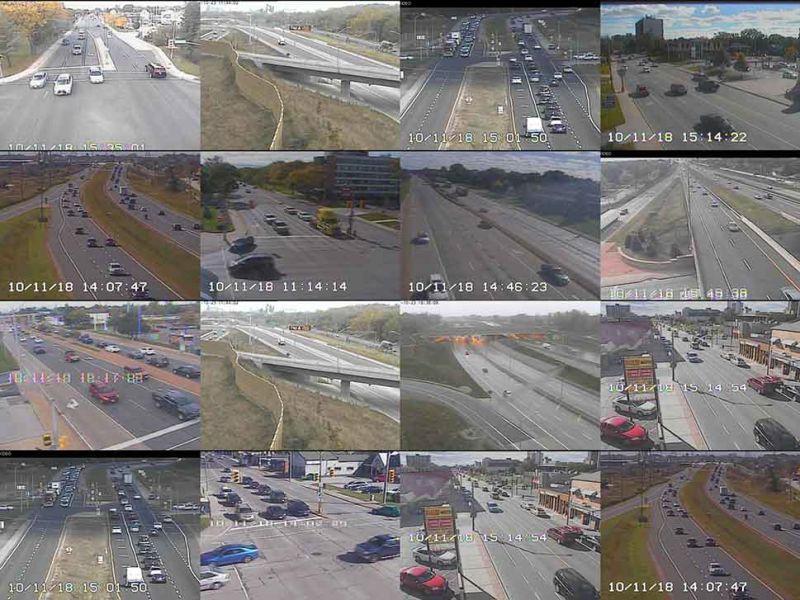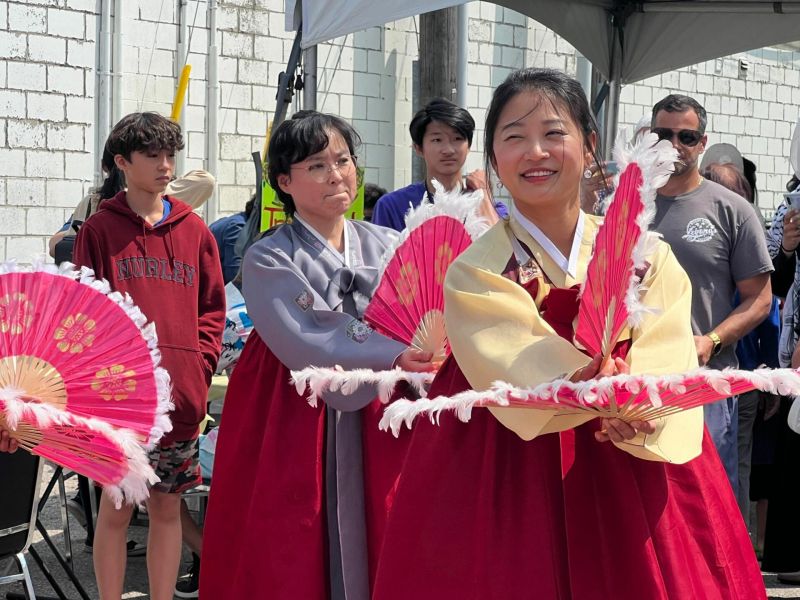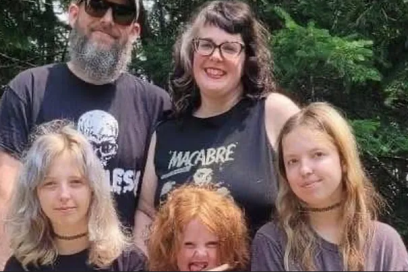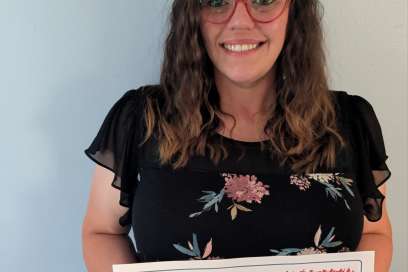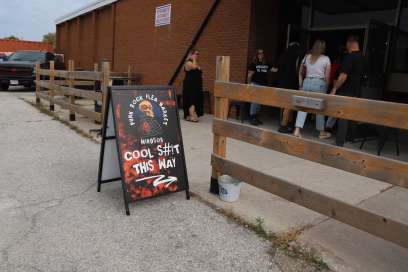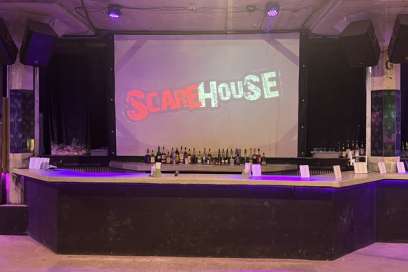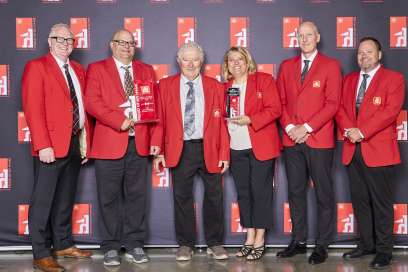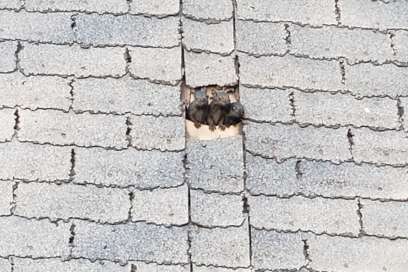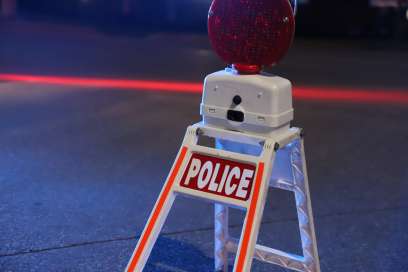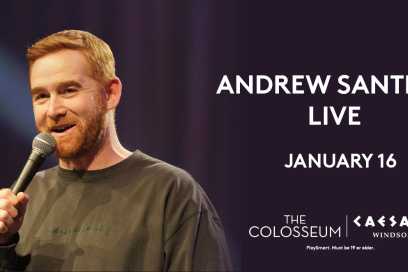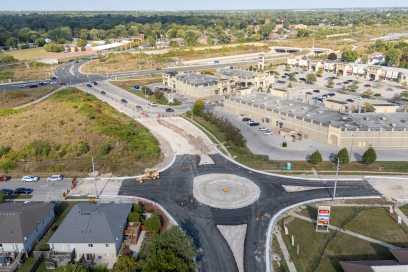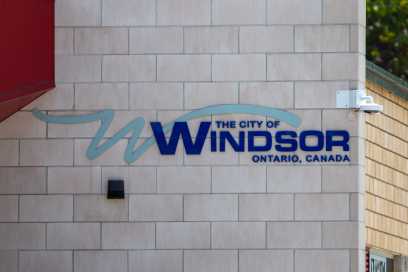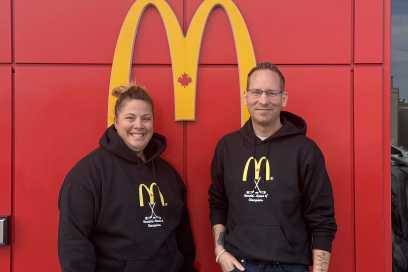Post Productions Showcases Local Arts On Bigger Stage
Hello time traveller!!
This article is 472 days old.
The information listed below is likely outdated and has been preserved for archival purposes.
Uniquely showcasing the city, a local theatre company is asking for help building towards the future.
Known for thought provoking plays, Post Productions is expanding to another medium. Getting fundraising underway, the company will soon begin filming their comedy series (up)Staged. Set across eight episodes, the mockumentary-style show will be filmed entirely in Windsor with local talent in front of and behind the camera. Looking for support from the community, the end result will ensure over 50 artists receive paid employment for their skills.
Evolving from the pandemic, the project has been in the making for a while.
“(up)Staged is really the consequence of the kinds of discussions theatre artists have when they’re working together or just hanging out, often late at night,” said producer and show runner Michael K. Potter. “We swap stories and memories about strange experiences, mistakes we’ve made that seem funny in retrospect, interesting people we’ve met while working on productions, all of the bizarre things that happen and the strange choices we make as driven (or maybe even obsessive artists) who are determined to create something wonderful out of basically nothing. During the pandemic, when we were stuck in our little bubbles, [Post Productions partner] Fay Lynn and I had a lot of these kinds of conversations with the other theatre artists in our bubble. It kind of felt like we might as well share these stories because maybe we would never actually get to put on live theatre again.”
Discussing it further, they became even more convinced more people would find humour in a series based on independent regional theatre. It would also show what goes into productions not backed by corporate or community theatre, which is often the reference point used across different media.
With this in mind, It became the ultimate example of writing to what you know.
“We thought ‘hey, we’d watch it even if no one else would,” said Potter. “‘There must be thousands of other people like us out there in the world who would also watch it.’ So we decided to just go ahead and do it because that’s kind of how we work: if there’s an idea we like that we can’t get out of our heads, we try to bring it into the world.”
(Up) Staged focuses on everyday issues facing an independent regional theatre company. Named Post Productions, they run Windsor’s Shadowbox Theatre and must navigate uncertain times after the pandemic. As a result, those in charge reluctantly allow film crews backstage in a bid to boost awareness and ticket sales. This also takes place as work is underway on Twoquus, an original, unauthorized and probably unwanted sequel to a classic play.
Originally, Potter and Lynn planned on writing the series themselves. Before long however, the pair realized it would benefit from additional co-creators and writers. Looking for people who could handle comedy, they expanded their inner circle to include Joey Ouellette and Dylan MacDonald. Adapting their writers room from a model used for TV, the latter had to leave the project for personal reasons before everyone convened in June 2021. Because of this, Potter, Lynn and Ouellette became series co-creators and writers.
When (Up) Staged reached its conceptualization phase, the team remembered many conversations from staging Equus in 2018. Although it’s Potter’s favourite play, those involved talked about a fictional sequel they could write called Twoquus. Envisioned as a loving satire of the original production, it revolves around a girl obsessed with birds. Even the title references its sequel status and the main animal being a toucan instead of a horse. Making each other laugh with ridiculous details while staying true to the spirit of Peter Shaffer’s original play, it fit perfectly within the series.
Another aspect was soon decided on fairly quickly as well.
“When it came to the style and aesthetics of the series we actually chose the mockumentary approach pretty early in the process,” said Potter. “During one of our first discussions, we thought it would be extra funny if the characters in the series knew they were on camera and were uncomfortable with it. This quickly turned into the idea of the fictional Post Productions becoming so desperate to build their audience that they had agreed (under duress) to allow a documentary crew to film the process of bringing a play to life from beginning to end.”
In terms of laying out the season, the show runner created a basic three act outline to play out over eight episodes. With that completed, he then drafted three act sketches of each episode to use as a foundation for everyone to work from.
Starting off, all three would show up at Shadowbox Theatre on Saturday or Sunday. Meeting in the lobby, they’d discuss which episodes needed to be worked on, including their purpose in the overall story and what each one had to accomplish. From there, the team would fire ideas off of one another with those showing promise getting developed through workshopping and conversation. At the end of each session, everyone added notes to overall episode outlines that included things like breakdowns of A, B, and C plots, gags, important character moments, foreshadowing, callbacks and similar things.
It’s also where an episode writing order was decided.
“Each of us would take responsibility for one of the episodes under discussion that day,” said Potter. “For example, I was responsible for writing the first draft of episode one, [Ouellette] was responsible for writing the first draft of episode two and [Lynn] was responsible for writing the first draft of episode three. At the end of the day we’d split off and spend the next five or six days writing our drafts separately. Then we’d email our drafts to each other so we could read what our collaborators had written and prepare ideas. Then we’d meet again the next weekend and workshop what we’d created – acting out the scenes, discussing what worked and what didn’t work and how to tweak things that didn’t. Often someone would come up with an idea that the other two liked and we’d end up riffing on that and trying to develop it as much as we could. We’d end up with notes about where the episode needed to go from here and then we’d swap scripts.”
This meant they were handed off to another writer for their second drafts. Once three episodes received drafts from each writer, the group would move onto the next batch. Once every episode had three drafts, the trio did a couple more, workshopping and revising the entire series. Over the following three years, Potter and Lynn edited each script again until they were satisfied.
If that wasn’t enough however, writers made sure to look for some outside perspective as well.
“Starting last summer we began working with a few people as script consultants primarily so we could get perspectives from different people who were unlike us in important ways,” said Potter. “For example, Maria Hausmann worked with us as an actor in a couple productions and was an intern with Post Productions in the summer of 2023. We thought it would be helpful to get the perspective of an intelligent teenager who’s also knowledgeable about theatre amongst many other things. So as part of her duties we employed her as a script consultant and paid her to read the scripts and give us notes, which we then discussed in person. She gave us a lot of insightful notes about many different aspects of the script, including what would and wouldn’t make sense or seem funny to someone from her generation.”
Moving onto production, assembling a team began last January and was 90-per-cent complete by the end of February. Starting with Mitchell Branget and Peter Marval, Post also brought in Dan and April Savoie after getting to know them as film makers. The latter pair suggested adding Walter Riggi, who became an important part of the team. Shane Trowbridge first met Potter as a fan of Blasted in 2018 before scoring Jonathan Tessier’s Stuck with Adrian Deschamps in 2022. Both were also musicians and project leads on Post’s 2023 Christmas album, which is when the company learnt he was a film maker. Given his collaborations with people they respected and their own history, Post soon invited Trowbridge into the (Up) Staged family too.
With this crew in place, creating opportunities for other local talent was also important to everyone.
“We wanted to bring in some younger up-and-coming filmmakers as production assistants so they could learn from the rest of the team while contributing their own talents,” said Potter. “That’s how Elissa Weir and Kieran Potter were added in March of this year. At our first production team meeting [Riggi] asked if he could bring Kurtis Sasso along as a possible member. After talking with him during the meeting, he seemed to be a good fit. We recently added Courtesy Lebert-Dean as another production assistant as well because we needed another person in that role. She worked for two years as a production assistant in Vancouver. What we ended up with is exactly what we needed to make (up)Staged work as planned.”
Once everything was in place behind the scenes, casting came next. Although Post had plenty of experience from staging plays, there was still a learning curve this time around. With their largest audition drawing 35 actors, numbers after the pandemic were closer to a dozen. This left producers worried over filling all 39 roles that weren’t already pre-cast.
Instead, their first round of auditions attracted roughly 100 people.
“We asked actors to send us a three-to-five minute recording of themselves performing a dramatic monologue as comedically as possible, along with their resumes, headshots and other normal material,” said Michael. “So getting through the first round of auditions ended up taking far longer than we’d anticipated. We had to organize all of these submissions in order to handle the sheer volume of information that would enable us to make decisions. From that initial batch we ended up inviting about 70 actors for in-person callbacks in round two.”
Involving nine days of in-person auditions, almost every actor read for multiple roles. Scenes for 39 characters also needed to be prepared so actors could show their approach, interpretations and mannerisms. It was a process that ballooned across the entire month of April.
Despite taking up so much time, the production had specific conditions that needed to be met.
“When it came to what we were looking for in the auditions, we used the same criteria we always use for the most part,” said Michael. “Talent and skill, suitability for the role, credibility in relation to other characters cast and whether or not they seem to be pro-social people with positive attitudes. We don’t like working with jerks.”
After the last offer was made on April 29, the company created contracts for everyone, sent them out to actors and agents, got them signed and made sure all legal matters were taken care of. Every actor was also asked which days they were available from May 1 to August 31, especially which ones they were definitely unavailable and reliably available for: Including pre-cast actors and crew in the group, the production is responsible for coordinating 59 different schedules.
Although more information is soon to follow, Michael’s philosophy when it comes to fundraising is similar to assembling (Up) Staged’s cast and crew. Looking to make a connection, the co-writer hopes that people on the other end will see the project’s importance as well.
Engaging with the community, it’s an investment he considers to be more than financial.
“What I like about getting others involved is that it creates an emotional investment in the project,” said Michael. “When you contribute, you’re not only financially invested in seeing that project succeed. You’re more likely to be emotionally invested as well, by which I mean you’re more likely to care. It also creates an audience for the project. So by the time (up)Staged is released, there will already be an audience of people who want to watch because they contributed to it. I think that’s pretty cool.”
Another reason the show runner is reaching out goes further than this project too.
“It fits in with some of our more ambitious long-term plans,” he said. “In particular, it fits with our plans to collaborate with like-minded artists and leaders to turn Windsor’s thriving and robust arts community into and arts industry, one that can also support a thriving arts tourism industry. If this is ever going to happen, the people of Windsor-Essex need to be willing to invest in their own artists and their own community. We have to convince people from other parts of the world that Windsor is worth their investment. By attracting investment from these parties, using it to create successful projects in the arts that also provide paid employment to artists and using those profits to invest in even more projects, we can grow Windsor’s economy., It would convince artists not to leave our region and let us attract artists from elsewhere to make Windsor their home.”
Money solicited for (Up) Staged will help pay artists working on the show. Putting in many hours throughout the summer, it’s an attempt to compensate them fairly. If successful, all involved hope that future proceeds from the series can jump start even more productions in the area.
Not unlike its fictional counterpart, the vision is one Post Productions will use all resources to fight for.

